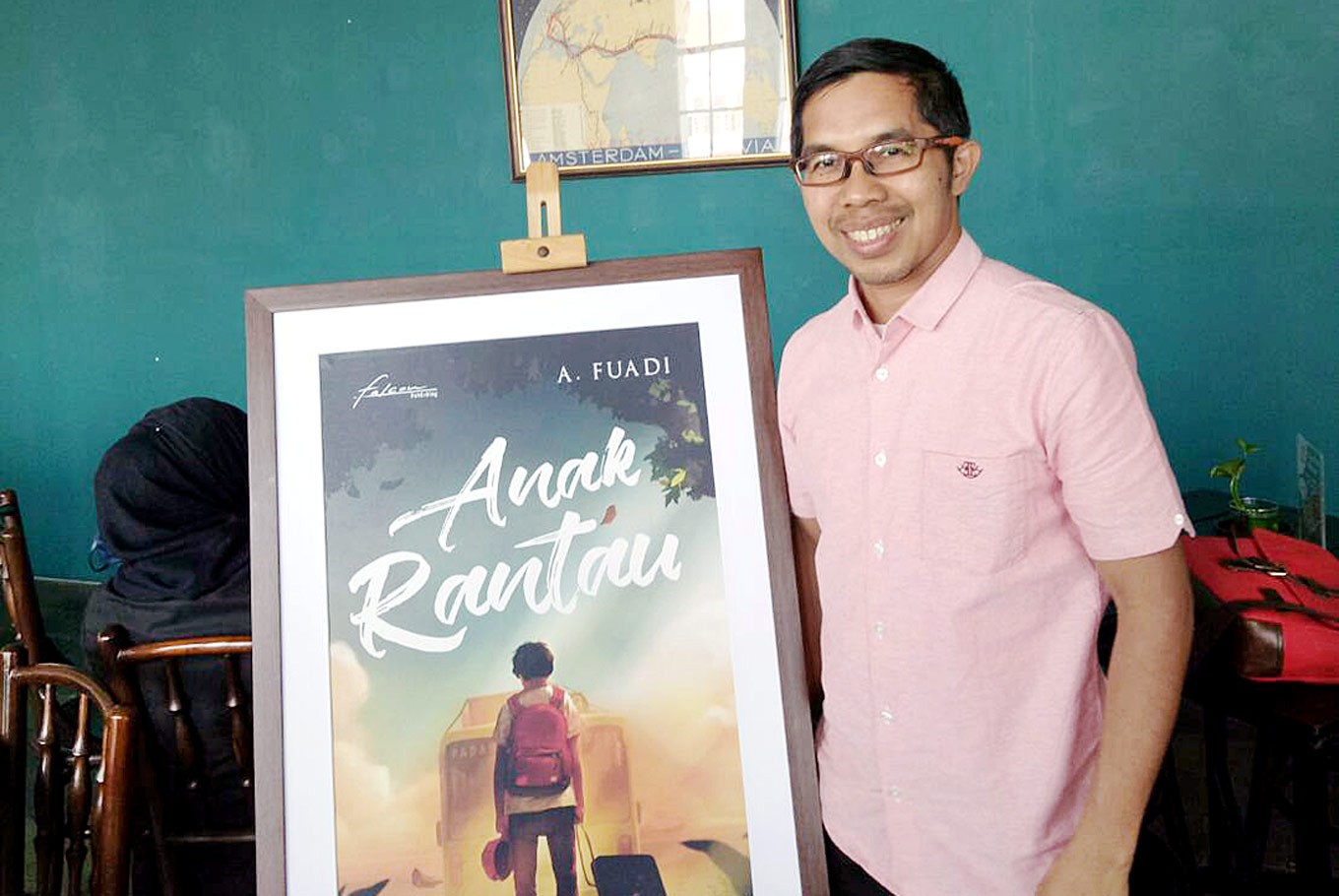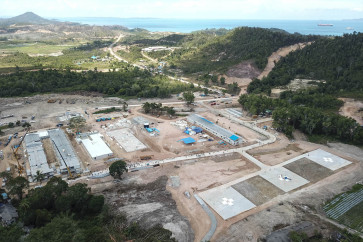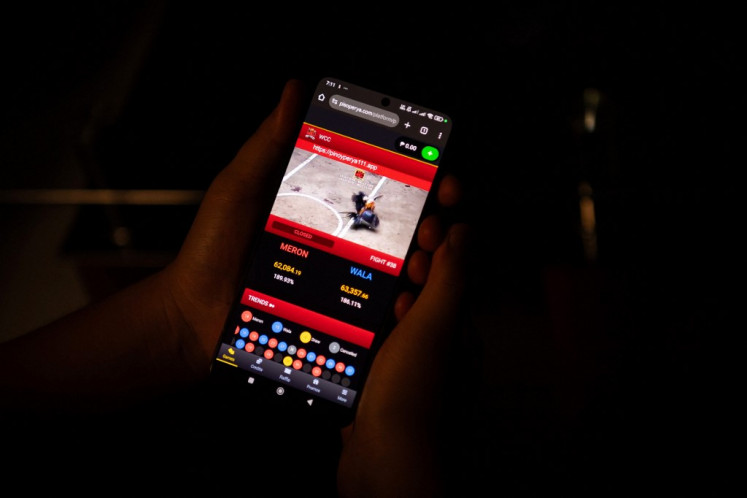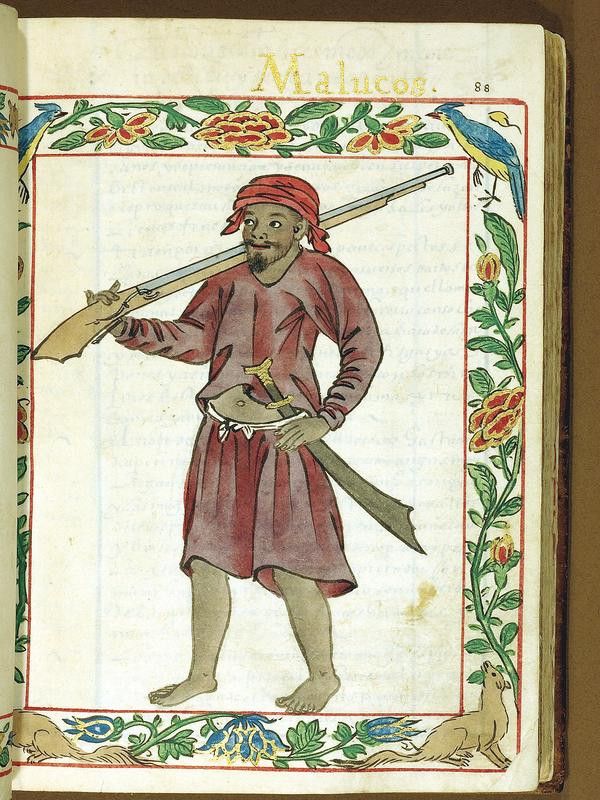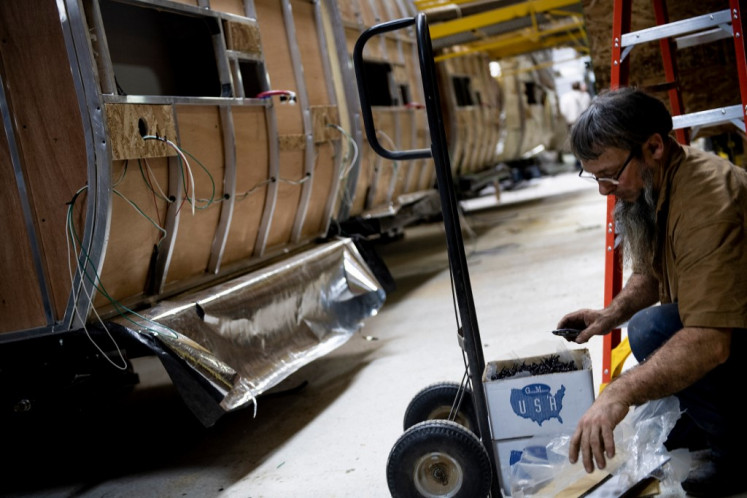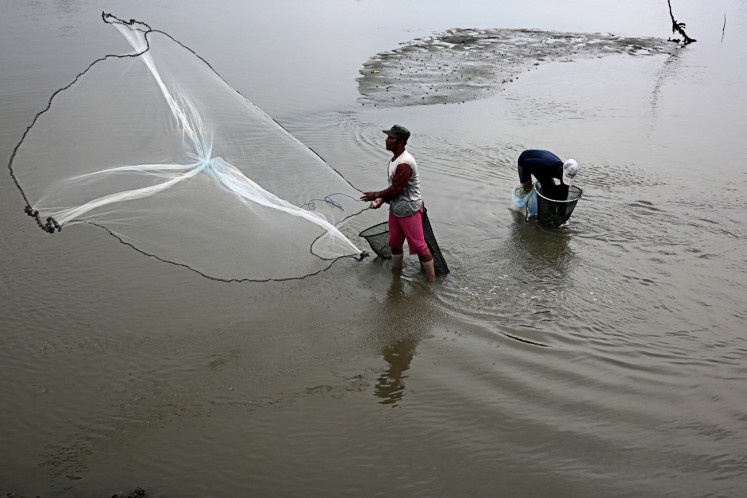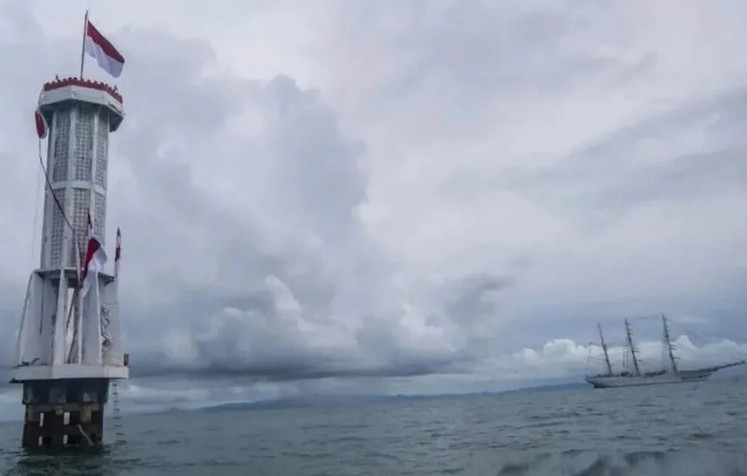Popular Reads
Top Results
Can't find what you're looking for?
View all search resultsPopular Reads
Top Results
Can't find what you're looking for?
View all search results'Anak Rantau' a story of wounds and forgiveness
Change text size
Gift Premium Articles
to Anyone
Fans of Ahmad Fuadi’s work can now add his newly released book, Anak Rantau (Wandering Kid), to their bookshelf.
It has been four years since Ahmad Fuadi’s last book, Rantau 1 Muara (The Estuary of Wander), was published.
Rantau 1 Muara was the last book to complete Fuadi’s well-known Negeri 5 Menara (Land of Five Towers) trilogy.
In the trilogy, Fuadi tells the story of a boy’s life journey from his simple beginnings in Bayur, West Sumatra, to studying at an pesantren (Islamic boarding school) in Ponorogo, East Java, before finally traveling around the world. Many people became fans of Fuadi’s works because it is pretty rare to see novels that tell detailed stories about life inside an Islamic boarding school.
Fuadi’s newly released novel, Anak Rantau, tells the story of Hepi, a 15-year-old boy who returns to his village in Tanjung Durian in Minang after living in Jakarta.
Hepi struggles at first but then discovers his reason for living in his village.
The novel was officially launched in early August during the Asian Literary Festival.
Fuadi said this was a standalone novel that did not relate directly to his previous trilogy. Nonetheless, he said it still shared some similar characteristics.
Fuadi spent four years writing Anak Rantau.
He got his first idea for the book when he was writing in a villa near Lake Como, Lombardy, Italy.
Initially, he planned to write a story about his romanticism for his hometown, which happens to be located near Lake Maninjau in West Sumatra.
After he had written the raw structure of the novel he decided to go back to his hometown do some research. It was then that he realized that his hometown was no longer the same place he had known before.
“It was not the same place anymore. The lake, which was pure and beautiful, is now tainted by pollution. Almost every year, once a month, there is the large-scale death of fish in Lake Maninjau. Hundreds of tons of fish die. Why? Because there were no karamba [floating fishing spots and restaurants] before and now, these floating restaurants are everywhere,” Fuadi said.
Fuadi also found that the village had lost social control. Before, the alim ulama(clerics), cerdik pandai (intellectuals) and ninik mamak (people who maintain the knowledge of tradition) controlled society but today, they are not as strong as they used to be.
Furthermore, he also discovered another unpleasant thing while doing his research.
“I’m very surprised that drugs have entered my village. I didn’t have the chance to talk with the people, but I have family who live there so I asked them about this.”
He even conducted an interview with the National Narcotics Agency (BNN) to dig out more information on this matter.
With this novel, Fuadi wants to address the serious things he saw happening in his village.
Using the point of view of a 15-year-old boy, Fuadi tries to help the reader of his novel understand the social problems that are happening not only in his hometown but maybe even in the reader’s own hometown.
Fuadi offers a way to reconciliation from the perspective of the character. Reconciliation is another major theme of this novel.
“This novel tells the story of wounds from the past that reside within the heart. These wounds should be forgiven,” Fuadi said.
***
The writer is an intern at The Jakarta Post

